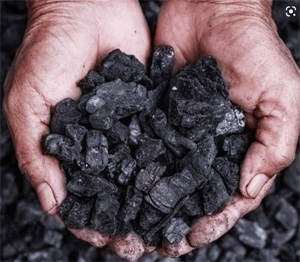Bhubaneswar: With the unprecedented coal crisis continuing to disrupt the operations of local industries and threatening their survival, the Odisha Assembly of Small and Medium Enterprises (OASME) has urged Prime Minister Narendra Modi to protect the MSME ecosystem dependent on coal-consuming industries and their ancillaries from the acute coal shortage.
The MSMEs are struggling due to a severe coal crunch which is continuing for over seven months, since August 2021.
It said the ongoing crisis has made it increasingly difficult to sustain industry operations and is causing massive socio-economic losses in the state, both for the industries and the locals which are completely dependent for their livelihoods on these MSMEs.
The shortage, a result of the plummeting coal supplies to the non-power sector majorly comprising the Captive Power Plants (CPPs) based industries in Odisha, has threatened the viability of industries that form the backbone of the state’s MSMEs and provides employment to lakhs, it added.
In its letter to the Prime Minister, Secretary General, OASME Satwik Swain said, “Even though the government has helped ensure uninterrupted power supply to Independent Power Plants, the situation remains grim for the non-power sectors across Odisha, who are facing a severe shortage of coal due to low supply, leading to ancillary SMEs dependent on them to the verge of closure.”
Describing the worsening situation as catastrophic, he said that the local industries face closure which could lead to colossal economic loss and unemployment of lakhs of people.
The letter brings to notice that despite repeated appeals by multiple MSME Associations, trade chambers and industry associations, such as Utkal Chamber of Commerce, the Association of Industrial Entrepreneurs (AIE) and the OASME itself, there has been no resolution so far and the affected stakeholders have now resorted to rallying against the production and supply anomalies, seeking prioritization of coal allocation for Captive Power Plants.
Highlighting the natural advantages enjoyed by the state, the spokesperson said, “Odisha holds 25% of the total coal deposit of the country. Out of the 129 million tons of coal produced through Mahanadi Coalfields Limited (MCA), 54% is being transferred to other states and only 46% is reserved for Orissa industries, against the actual minimum requirement of 65% for local CPPs.”
He further added, “Such acute shortage is creating a dangerous situation for the manufacturing sector, threatening the shutdown of MSMEs, leaving the state deprived of domestic value addition alone and has a bad impact on global investment.”
The CPP-based industries in Orissa, which are energy-intensive and heavily dependent on stable supplies of coal as their primary raw material, are unable to run smoothly due to the existing situation.
The letter further brings to attention that since August 2021, there has been a backlog of over 1500 coal rakes due to the backlog in supply by Coal India Limited where the coal rakes are being diverted away from CPPs.
The undue struggle to receive uninterrupted coal supplies for continued operations has troubled the industry and brought it to a virtual standstill. Due to the aforesaid reasons, the operational power plants are forced to operate at reduced power generation levels, creating a huge risk of closure of the plants.
The cost of imported coal has shot up exponentially which, coupled with expensive ocean freight rates, makes it financially unviable for most of the consumers to depend on.
Though a few businesses have attempted to meet their needs through imported coal, barring a few plants, most of the boilers, kilns and furnaces are designed and set up to run on indigenous coal. Therefore, uninterrupted supply of indigenous coal is essential for sustenance of these plants.
It said that domestically, coal consuming Industries (including CPPs) are eligible to procure coal only by participating in Coal Linkage Auctions for long-term commitment and Spot & Exclusive e-Auctions for immediate requirements.
These consumers generally secure their fuel quantity at high premiums to ensure continuous and regular supplies of coal to their plants. Due to this, a huge amount of their working capital is also blocked in securing supply commitments from Coal India Limited (CIL).
Therefore, the entire gamut of coal procurement becomes extremely challenging without fulfilment of regular supply commitment as per their agreements.
Seeking government support in this prolonged matter of critical importance that the sector has endured for the past 8 months, the OASME Secretary General requested the Prime Minister’s intervention to help normalise the situation that is affecting the entire ecosystem.
The crisis, if not attended to immediately, could lead to closure of nearly 5000 SMEs and lead to loss of employment and livelihood for lakhs of people who are dependent on them, he said and appealed for urgent resumption of adequate coal and rake supplies to the local CPP-based industries.


